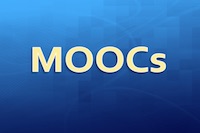Students’ Perceptions on MOOCs: An Exploratory Study
 MOOCs are open, online courses that use information technologies to enhance the learning experience and attract various people from the entire world. The current study uses the Technology Acceptance Model (TAM), as well as personal characteristics such as learning strategies, cognitive appraisal, and Kuhlthau’s (1991) model of information seeking as theoretical bases for defining factors that may influence students adopting MOOCs in their learning process, as well as describe their feelings during the learning process. The study was conducted in Israel during the 2014 academic year, and used both quantitative and qualitative techniques and involved 102 students who participated in a MOOC as part of the requirements in an offline course. They were requested to keep study diaries. The quantitative analysis revealed that perceived usefulness (PU) and perceived ease of use (PEOU) have a major influence on the intention to enroll in a MOOC. PEOU can be increased by improving the current MOOC platforms. PU can also be improved by providing content that suits the students’ needs. The qualitative analysis showed mood changes over time; the feelings of uncertainty were replaced by expressions of confidence. We found that students have different needs and expectations. Therefore, the MOOC’s platforms should provide multiple options to accommodate these needs.
MOOCs are open, online courses that use information technologies to enhance the learning experience and attract various people from the entire world. The current study uses the Technology Acceptance Model (TAM), as well as personal characteristics such as learning strategies, cognitive appraisal, and Kuhlthau’s (1991) model of information seeking as theoretical bases for defining factors that may influence students adopting MOOCs in their learning process, as well as describe their feelings during the learning process. The study was conducted in Israel during the 2014 academic year, and used both quantitative and qualitative techniques and involved 102 students who participated in a MOOC as part of the requirements in an offline course. They were requested to keep study diaries. The quantitative analysis revealed that perceived usefulness (PU) and perceived ease of use (PEOU) have a major influence on the intention to enroll in a MOOC. PEOU can be increased by improving the current MOOC platforms. PU can also be improved by providing content that suits the students’ needs. The qualitative analysis showed mood changes over time; the feelings of uncertainty were replaced by expressions of confidence. We found that students have different needs and expectations. Therefore, the MOOC’s platforms should provide multiple options to accommodate these needs.







